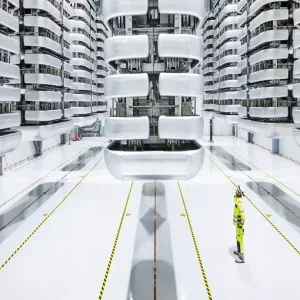
The Barauni Thermal Power Station, which is located in the Begusarai district, is a coal-based power station that has been in operations since 1962.
Currently, the thermal power station comprises two power generating units of 110MW each, which are undergoing renovation and modernization and to be joined by two new units of 250MW each, which are under construction.
NTPC said that the units of the Barauni Thermal Power Station will be placed into commercial operation progressively. The thermal power project sources coal from the Badam Coal Block, which will also be transferred to NTPC from BSPGCL.
NTPC, in a stock exchange statement, said: “Transfer of Barauni Thermal Power Station has been completed by NTPC and BSPGCL in accordance with the ‘The Bihar Power Generation Undertakings Transfer Scheme 2018’ notified by Government of Bihar on June 27, 2018 and amendment dated December 14, 2018.”
The Indian state-owned energy conglomerate further said that the entire capacity of the Barauni Thermal Power Station is tied up via power purchase agreement with Bihar Power Discoms.
The Barauni project, which broke ground in 1960, was established with the technical assistance of Yugoslavia and Poland, while the US played a role in its funding. The power plant started with three units of 15MW each, which were subsequently retired.
Two units, each of 50MW were added to the Barauni Thermal Power Station between 1969 and 1971, which were also retired after the end of their operational lives. In the mid-70s, two units, each of 110MW were announced for the project, which after nearly 26 years of operations were placed under renovation and modernization.
Earlier this month, NTPC said that it bagged rights to develop 85MW of new solar energy during the 550MW tender floated by Uttar Pradesh New and Renewable Energy Development Agency (UPNEDA) for grid-connected solar projects.
In another part in India, in the southern state Karnataka, NTPC in September completed the first stage of the 4GW Kudgi Super Thermal Project in the Bijapur district by commissioning a third unit of 800MW.






